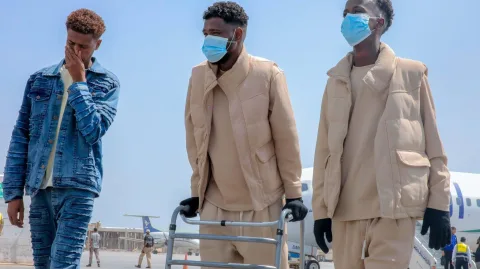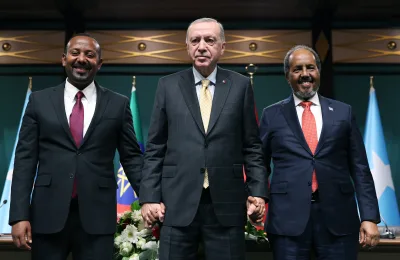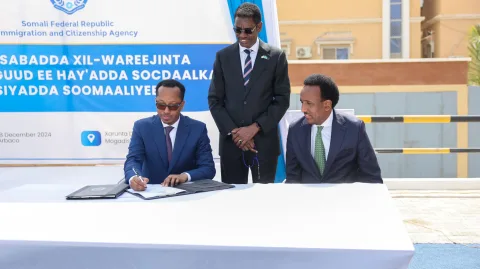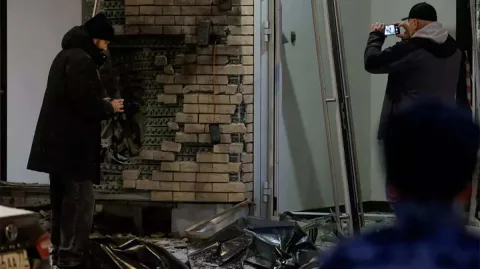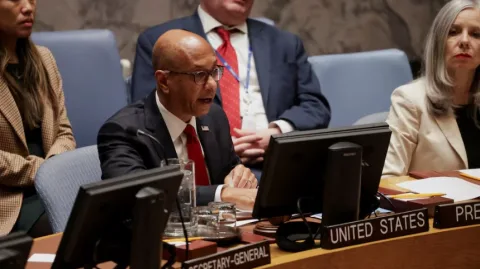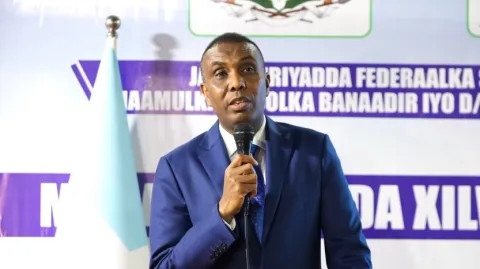Somali President Shariff Sheikh Ahmed is opposed to the deployment of Kenyan troops in his country…
 Somali President Shariff Sheikh Ahmed is opposed to the deployment of Kenyan troops in his country because he believes it is an attempt by Kenya to create an autonomous Jubaland. Communication from as far back as March 2011 between President Shariff and President Kibaki shows that the Somali leader asked Kenya not to deploy to Juba region an estimated 2,500 young Somali soldiers who had been trained and equipped in Kenya.
Somali President Shariff Sheikh Ahmed is opposed to the deployment of Kenyan troops in his country because he believes it is an attempt by Kenya to create an autonomous Jubaland. Communication from as far back as March 2011 between President Shariff and President Kibaki shows that the Somali leader asked Kenya not to deploy to Juba region an estimated 2,500 young Somali soldiers who had been trained and equipped in Kenya.
President Shariff was worried that the youth, if deployed in the Juba region, would help former Somali Defence minister Mohamed Ghandi whom Mogadishu suspects is attempting to create a separate state for himself between Kenya and the Juba River. President Shariff on Monday issued a statement saying Kenyan troops were not welcome in Somalia. He said Kenya had gone against the original agreement of providing logistical support when it sent in soldiers to pursue the Al Shabaab militia group.
His statements were however criticised by several Somali leaders including the military spokesman and ordinary citizens who said they welcomed Kenya’s help to tame the al-Shabaab. Yesterday, President Shariff and his Prime Minister Abdiweli issued a statement denying that there was any agreement between the two governments for the intervention of Kenyan military in Somalia.
They said they were opposed to Kenya’s intervention but conceded that the two countries had a common interest to fight against the militia group. “The government will not break its decision on this issue., Wew have asked Kenya to assist the Somalia fovernment in training and supporting the Somali a army buy not to intervene in Somalia,” President Sharif said at the joint press conference he and his PM addressed after a closed door meeting.
“We do not have agreement with Kenya. We understood that we need to defend against the militants but there is no proof saying that we agreed with Kenya,” PM Abdiweli said. Somalia’s pro-government militias of Ahlu Sunna Wal Jamma and Ras Kamboni have supported Kenya’s intervention and criticized the TFG president for opposing the presence of the Kenyan military.
Internal Security minister George Saitoti yesterday wrote to the Somali government demanding an explanation on President Shariff’s remarks as well as conflicting media media reports about the Somali government’s position on the ongoing military co-operation. “In the light of this the Kenya Government is seeking clarification of the Somali government’s position as it is essential to have a unified approach in dealing with the destabilization of Somalia by Al Shabaab and its threats to peace and security to Kenya and the region,” Saitoti’s letter read. “In the meantime Kenya with collaboration with IGAD and AU, is continuing with the operation against Al Shabaab.”
While Kenya wanted the soldiers it had trained to form a buffer between Kenya and the Al Shabaab-controlled regions around Mogadishu, the Somalia Transitional Government wanted them sent to Mogadishu to fight Islamist militia. Ethiopia too has objected to the creation of Jubaland mainly inhabited by the Ogaden and Merehan clans. Addis Ababa feels that would encourage separatist passion in the Ogaden Region of Ethiopia.
The decision by the Kenya government to recruit mainly from the Ogaden resulted in complaints from other clans. The Ogaden clan primarily lives in the Central Ogaden plateau of Ethiopia, the North-Eastern Province of Kenya, and the Jubaland region of Southern Somalia. They also inhabit Somalia’s major cities such as Mogadishu and Kismayo. The Marehan mostly live in Jubaland, Gedo and Lower Juba regions in Southwest Somalia and in Northeast Kenya. They are considered the most fierce nationalists among the Somali people and have always played key roles in both the Somali uprisings.
In a letter dated March 21 and addressed to President Kibaki, the Somali President acknowledges the role Kenya has played in training and equipping the army of youths. “Excellency we are particularly indebted for the training and equipping our forces in Kenya. We pray that a peaceful Somali and region will enjoy Strengthened friendship and prosperity,” states President Shariff. The letter was handed to President Kibaki in Nairobi by Somali Prime Minister Abdirashid Ali Sharmarke.
Due to suspicions against his former Defence minister Ghandi, President Shariff in the letter to President Kibaki transferred the responsibility of the coordination of the youth recruits from Ghandi to then Defense Minister Abdullah Boss. “I write to you this letter to inform you that the bilateral security responsibilities including the coordination and follow up of Somali force training in Kenya that we previously assigned to our former Minister of Defense and current Minister for Air and Land Transportation HE Mohamed Abdi Gandi is hereby transferred to our current Ministry of Defense,” the letter says.
The Somali President further transferred the responsibility of regional administrators trained in Kenya to the current Interior minister of Somalia, Abdirashid Mohamed Hidig. “There are people who are unhappy of the training that you have provided for our forces and the regional administration and wish to deny this region and Somalia any peace and stability. We wish to correct this situation administratively by bringing the military force under the department of Defense and the regional administration under the ministry of interior,” stated the Somali President.
In late March 2011, Gandi hosted elders from the Marehaan and Ogaden – who are the main clans in Gedo and Juba regions of Somalia – at Chester House in Nairobi to discuss the stalemate in the deployment process. In the meeting Gandi discussed with the clan elders a possible withdrawal of support to the government.
Meanwhile, thousands of Somalis at the Dadaab,Ifo and Hagadera refugee camps yesterday held a peaceful demonstration against President Shariff and to voice their support for the military operation. Hagadera camp Chairman Kussow Abdi Nuni said they supported the intervention as frequent incursions into Kenya by Somali militiamen had negatively affected their peaceful stay in the country.
He said Shariff’s sentiments were out of touch with the reality on the ground as al-Shabaab had carried out frequent raids forcing humanitarian organisations working in the camps to scaled down or stop their operations altogether putting the lives of thousands of Somali refugees in jeopardy. “As the refugee community we have to be grateful to Kenya for giving us a safe haven for more than two decades. We condemn insecurity and that is why we support the Kenyan opearion in Somalia”, said Kussow.
Source: The Star
